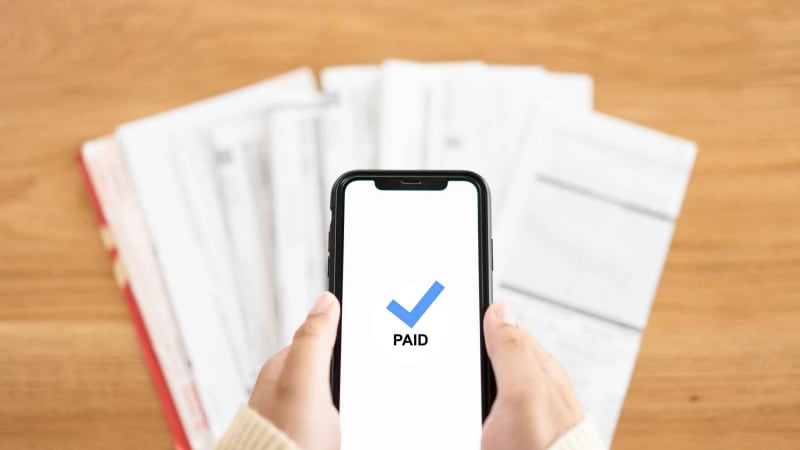What happens to credit card debt when you die?

Quick insights
- Learn who is responsible for managing the debt after death.
- There are a few steps you may need to take after a person’s death, such as contacting the credit bureaus.
- It’s important to review what is in the Estate to help navigate the financial decisions after the death.
Credit card debt that's left after someone dies is often paid for by their estate, but in some cases, it can become the responsibility of a joint account holder or co-signer. Let’s go into more detail below.
Who is responsible for managing the debt after death?
Note: Responsibility for managing the debt after death can vary greatly. Below are a couple of examples of how debt can traditionally be handled. These are not the only ways to handle debt and other options exist. Consult an estates services professional if you find yourself needing assistance managing debt.
The Estate
Credit card balances are typically paid for by the deceased's estate, which is everything that they owned at the time of death.
Probate
Probate is the process of gathering a decedent's assets, paying the creditors and any taxes owed, then distributing the remaining assets according to the will or state law.
Executor
The person or entity appointed by a will and/or appointed by a court to administer the estate of a deceased person is called the executor.
Beneficiary
A beneficiary is the person or entity that is legally designated to receive the benefits or financial assets of a deceased person.
How credit card debt can affect beneficiaries
The estate will pay off debts before going to any beneficiaries (or heirs). If the estate doesn't have enough assets to pay the debt, beneficiaries are generally not responsible for the debt. If they're co-signers, joint cardmembers or are the spouse of the deceased and live in a state that recognizes community property (a community property state), the beneficiaries may be responsible for the remaining debt.
Four steps to take when a cardmember dies
1. Organize accounts
Request copies of the death certificate. If you're not fully aware of how many accounts the person had, request a copy of their credit report, which will list all of the accounts in their name. Most financial organizations will require the death certificate to access the accounts. You'll want to organize all associated financial documents in preparation for this.
Keep an eye out for any mail addressed to the cardmember. It's recommended to monitor mail for six months to a year after a death to ensure that nothing important is missed.
2. Stop using the credit cards
Credit cards of the deceased are no longer valid. They generally cannot be used under any circumstances, even for funerals and final expenses. Transactions on these cards can result in fraud. Even if you're an authorized user or had permission to use the card before the cardmember passed away, do not use them to make purchases.
All credit cards should be collected after death and stored somewhere safe, or they can be destroyed to prevent further use.
3. Notify credit card companies
Notify the credit card companies ASAP to stop interest from accruing and any other fees. This should be done for both primary and joint credit cards.
Make sure to also look at card statements to see if there are any recurring charges—you'll want to transfer these to a different card or bank account. Things like phone bills or utilities may be on automatic payment and charged to the account each month, so you'll want to take care of this right away.
You can call the number on the back of the card and speak with a customer service representative about your situation. Note that the credit card companies may ask for an official copy of the death certificate and may also need the deceased's Social Security number.
4. Notify credit bureaus
When managing credit, notifying the credit bureaus is something that is done to freeze credit, unfreeze credit and notify about the deceased’s accounts. Notify at least one of the three major credit bureaus (Equifax®, Experian™ and TransUnion®) and put a credit freeze on the deceased's account. This should prevent anyone from opening new accounts or credit cards in their name. Unfortunately, identity theft is not uncommon after a loved one passes away. To learn more about your credit score and reporting information to the credit bureaus, consider enrolling in Chase Credit Journey®, a free online tool anyone, including non-Chase customers, can use.
In conclusion
When a loved one passes away, you'll have a lot to take care of, including their finances. It's important to remember that credit card debt does not automatically go away when someone dies and it must be paid by the estate or the co-signers on the account. You'll also want to notify the appropriate entities such as credit card companies, credit bureaus and any services that are set up with automatic payments.



